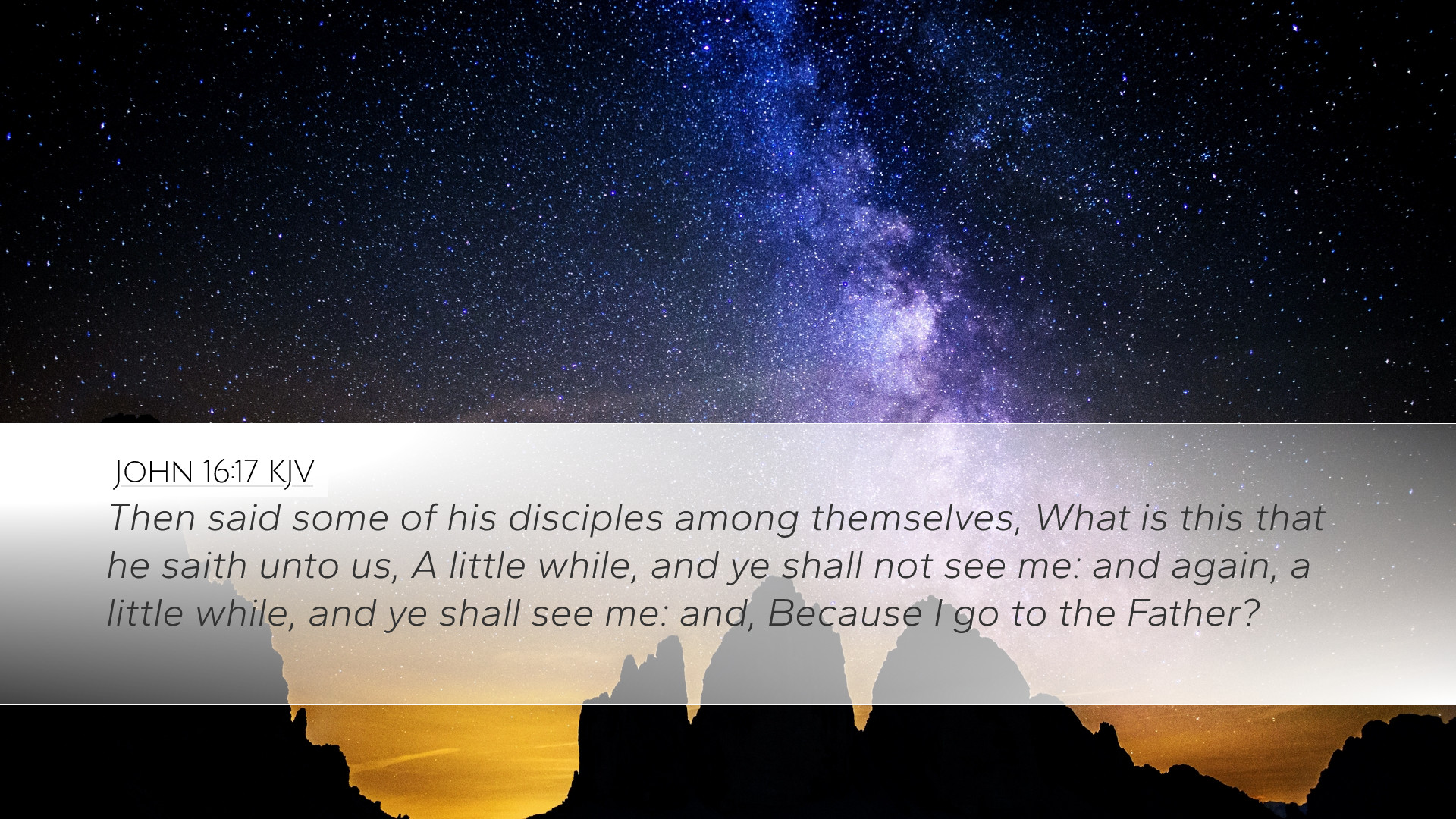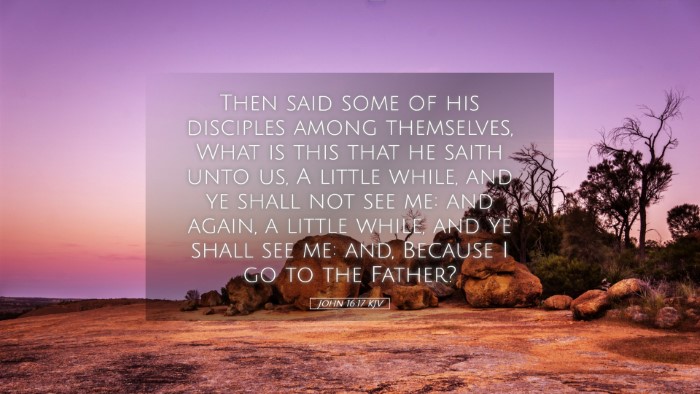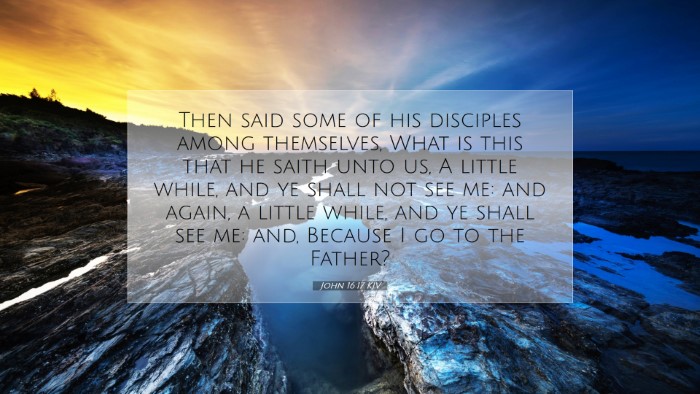Commentary on John 16:17
Bible Verse: “Then said some of his disciples among themselves, What is this that he saith, A little while, and ye shall not see me: and again, a little while, and ye shall see me: and, Because I go to the Father?”
Introduction
John 16:17 captures a moment of confusion among Jesus' disciples as he speaks cryptically about his impending departure and return. This passage is a rich text for theological reflection and pastoral application, as it touches upon themes of departure, presence, and the nature of the relationship between Christ and His followers. In drawing from various public domain commentaries, this analysis aims to provide meaningful insights for pastors, students, theologians, and Bible scholars.
Contextual Background
To fully grasp the weight of John 16:17, one must consider the broader context of the farewell discourse (John 14-16) where Jesus prepares His disciples for his departure. This discourse is pivotal in understanding the dynamics of discipleship and faith amidst uncertainty.
Setting and Themes
- The setting is a private meeting where Jesus reveals deep spiritual truths.
- The disciples' confusion points to a lack of understanding regarding Jesus' mission and the nature of his glory.
- The themes of separation and reunion are foundational to Christian hope and eschatology.
Verse Analysis
Disciples' Confusion
The question posed by the disciples ("What is this that he saith") signifies their perplexity. According to Matthew Henry, this reflects a broader human experience when confronted with divine mysteries. Henry notes that while the disciples did not comprehend the entirety of Jesus' message, their inquiry opens the door to deeper understanding.
“A Little While” – A Temporal Paradox
The phrase “a little while” (Greek: mikron) is profound and multi-faceted. Here, Albert Barnes indicates that Jesus uses time as a spiritual teaching tool. Time in the context of God's plans does not operate on human scales. This teaches believers to trust in God's timing rather than their expectations.
Seeing and Not Seeing
The dichotomy of seeing and not seeing suggests spiritual perception. Adam Clarke elucidates this by explaining that while Jesus would be physically absent, His spiritual presence would continue through the believers. This absence is not defined by distance but by the relational dynamics that exist through faith.
Theological Implications
Christ’s Ascension and Presence
The verse points to Jesus' ascension and the subsequent availability of the Holy Spirit. This transition is significant for the church. According to Matthew Henry, the promise of seeing Him again post-ascension emphasizes the hope of the believer and the assurance of Christ's ongoing presence through the Spirit.
The Nature of Spiritual Sight
Albert Barnes points out that seeing Christ in a spiritual sense is an essential aspect of faith. Believers are called to recognize Christ not merely through physical sight but through spiritual insight, walking by faith rather than sight (2 Corinthians 5:7).
The Impact of Absence
The verse also deals with the emotional impact of Christ’s absence. Adam Clarke reflects on the sorrow the disciples would feel and contrasts it with the joy that His subsequent appearances would bring. This oscillation between sorrow and joy illustrates the Christian experience of loss and hope, a tension frequently encountered in the life of faith.
Pastoral Applications
Comfort in Uncertainty
For pastors, this passage serves as a reminder that congregants may face times of confusion and sorrow. The longing for Christ’s presence is echoed in their lives, and pastoral care should emphasize the assurance of God’s continued presence through the Holy Spirit, even when circumstances are unclear.
Encouragement for Spiritual Growth
This text encourages believers to pursue deeper spiritual understanding. The disciples' initial misunderstanding can mirror our own walks with God. Pastoral teaching can encourage congregants to seek a clearer vision of Christ through prayer, study, and community engagement.
Liturgical Reflections
In liturgical contexts, John 16:17 can be an excellent focal point for themes on absence and presence, particularly during seasons of Lent and Advent, where anticipation of Christ's presence is emphasized. Incorporating this passage into worship can encourage congregants to reflect on their own spiritual journeys of waiting and seeking.
Conclusion
John 16:17 encapsulates significant themes of departure, confusion, and the promise of spiritual presence. Through the insights of Matthew Henry, Albert Barnes, and Adam Clarke, we discern the ongoing relevance of this verse for understanding the nature of our relationship with Christ. As both a theological study and a pastoral tool, this verse encourages believers to embrace the complexity of faith that involves both sorrow and joy, absence and presence.


